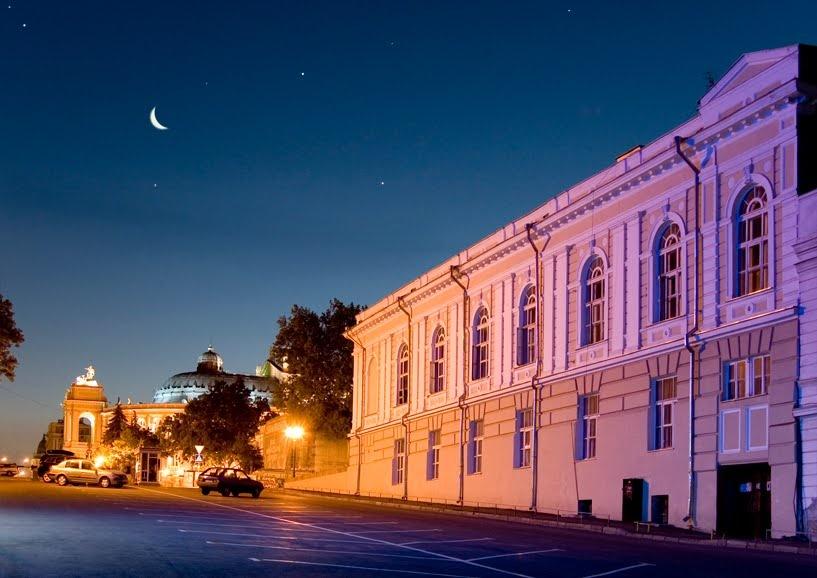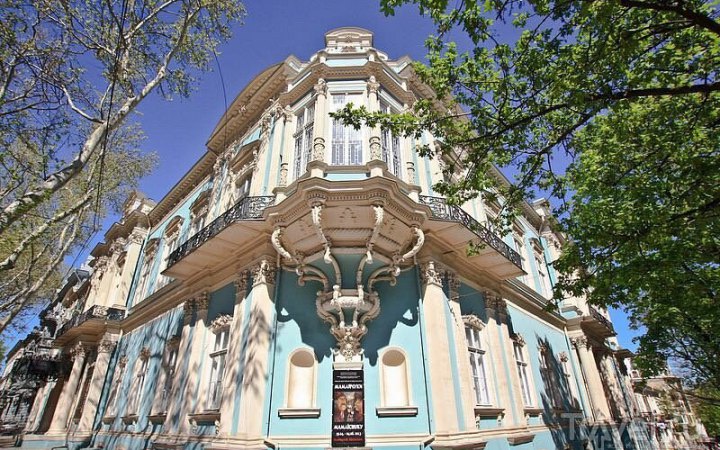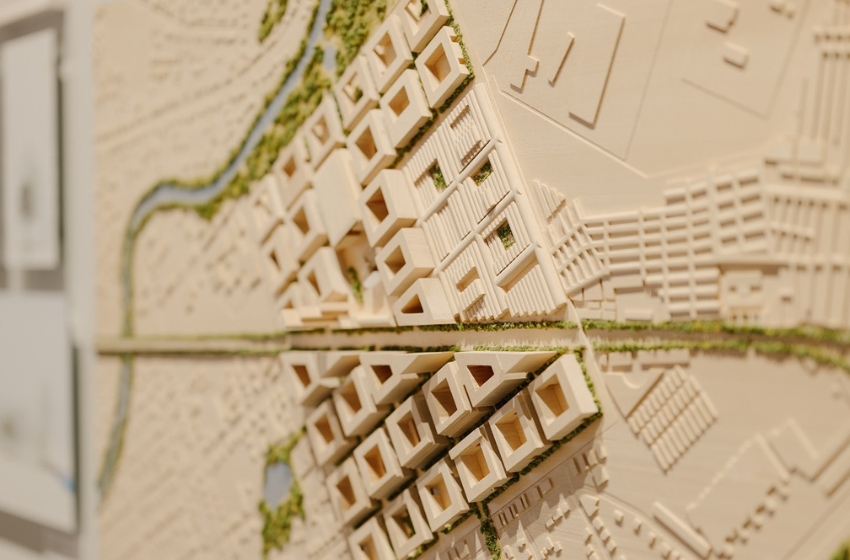Castles and Manors of Odessa region
A visit to a castle or palace is often a major highlight for Eastern Europe travelers. The many castles at the landscape have become picturesque ruins, museums or a places for shooting a movie, and some remain in use by governments.
Some castles are at the heart of historic center of Odessa, while others might require you to take a trek into the countryside. They add romance and historical significance to tours.
So let this story begin!
Abaza Palace
9, Pushkinskaya str.

The Museum of Western and Eastern Art is actually a palace. It was built in 1856-1858 according to the project of Ludwig Otton, the son of the famous restaurateur Caesar Otton. The customer and owner of the house was Alexander Mikhailovich Abaza, who served under General Alexander von Lüders before he came to Odessa and held the post of Poltava city mayor in 1872 - 1888 and after.
The palace is based on eclecticism: elements of baroque, empire and rococo are combined. A hinged balcony window is the hallmark of the building. The interiors are rich in stucco decoration, carvings, luxurious doors, bronze fittings, etc. The unique marble staircase of the lobby deserves your special attention.
Two years later after the foundation, the Odessa Architectual Register was replenished with a new masterpiece, which quickly gained popularity among the local aristocratic society thanks to the hospitality of the owner, as well as its magnificent social receptions and balls.
Before the fall of the Romanov’s house in 1917th, the Russian Shipping and Trade Association took over the palace halls. In 1938 the building was assigned to the Art Museum, where the Architects Union also lodged. Now this building is known as the Museum of Western and Eastern Art.
The museum’s collection can be conditionally divided into three large parts: the art gallery of works by masters of the 16th – 20th centuries (Rubens, Caravaggio, Granachchi, Hals, Mommers, Edelfelt, Rieber, Magnasco, Strozzi, etc.), the eastern section (the most typical China, India, Iran, Tibet, the jewelry, interior and religious items), the department of graphics with the works of Giovanni Battista Piranesi and samples of decorative art.




Gagarin Palace
2, Lanzheronovskaya str.

The palace was built for Prince D.I. Gagarin - one of the first citizens of Odessa, a ceremonial mansion for receptions and balls for the high society of the Russian aristocracy. The building was made in the style of Russian classicism with elements of eclecticism, such a combination of architectural styles is often called free southern eclecticism and the Gagarin Palace is one of the best examples of this unique style that originated in Odessa.
The facade of the two-fstoried palace is facing East - towards the sea. The architectural composition resembles a castle, which is facilitated by the exterior decoration of the building: a massive basement, reminiscent of bay windows, arched windows. The main style-forming element of the lobby is an extensive marble staircase, diverging on both sides and leading to the front apartment, on the second floor.
Here you can see the features of southern eclecticism in all its glory: a harmonious combination of empire, baroque and classicism, ceilings generously decorated with stucco molding, typeset parquets made of precious woods. Thanks to the restoration carried out in 1978-83, the interiors and facades of the palace have survived to our time in an almost unchanged form.
The building was used as a Palace for balls for about 6 years, then it was leased, and in 1898 the Gagarins handed it over to the Literature Aristocratic Society. Since then, the former Gagarin Palace has become the focus of the cultural life of the city, many famous writers and poets who have come to rest in Odessa have visited it. The Literature museum was opened in the former palace in 1984.
The 21st hall of the museum - Gagarin's palace - is an exposition of the literary history of Odessa, here the original interiors are combined with modern elements and an exposition. Therefore, the only hall of the palace that has reached us unchanged is the Golden Hall.






General Jacob de Witt Palace
1, Lanzheronovskaya str.

Count Jacob de Witt is the grandson of the architect from Holland, a relative of the famous de Witt family. During his life he conducted large-scale activities, being a Russian spy at the court of Napoleon, a probable lover of Napoleon’s sister and, at the same time, a Napoleonic spy in Poland. And his palace, clearly visible only from certain angles, is not included in the list of places that must be visited by the tourists.
Since 1832, having received the post of inspector of the entire reserve cavalry of the Russian Empire, de Witt finally settled in Odessa. Here he built for himself a chic palace, where he lived until his death in 1840.
The palace of Jacob de Witt, built in the 1830s, is still preserved. Tere is no more accurate foundation even in the official list of architectural monuments of Odessa. It was built by the architect George (Giorgio) Torricelli.
The palace was built on the edge of the steep slope of the Quarantine beam. Thanks to this, it used to be clearly visible from the opposite slope. And almost completely invisible from the center of Odessa. Only when we approach the Literature Museum we see the bizarre towers of a peach-colored gothic medieval castle hidden behind a fence. The palace was built in the neo-gothic style which was in trend at that time.
At the end of the XIX century, the palace became the property of the Russian Shipping and Trade Society , the largest shipping company in the empire. Then it became the building of the Black Sea Shipping Company. Actually, their office is still located there accompanied with the Administration of the Seaports of Ukraine.
























